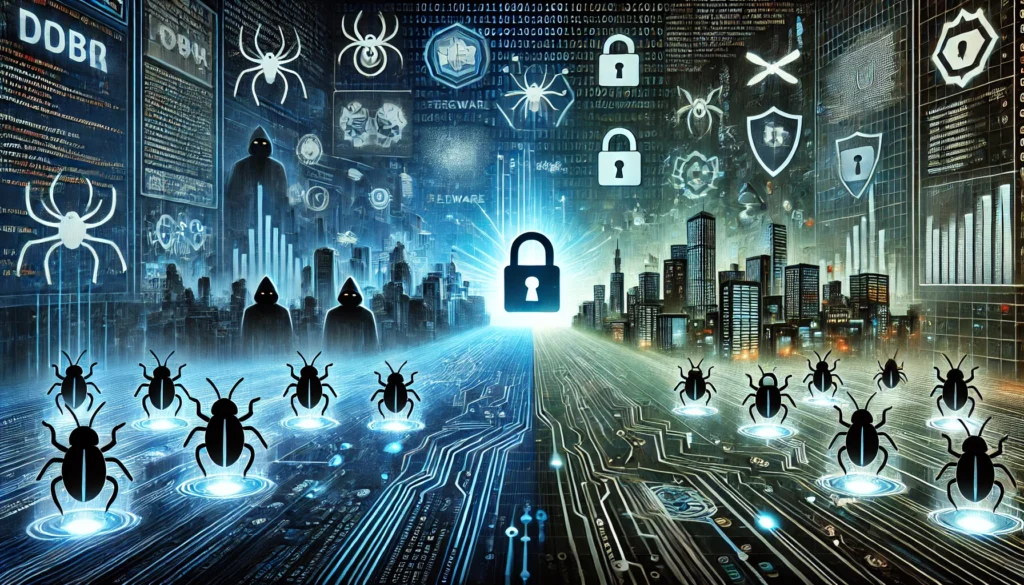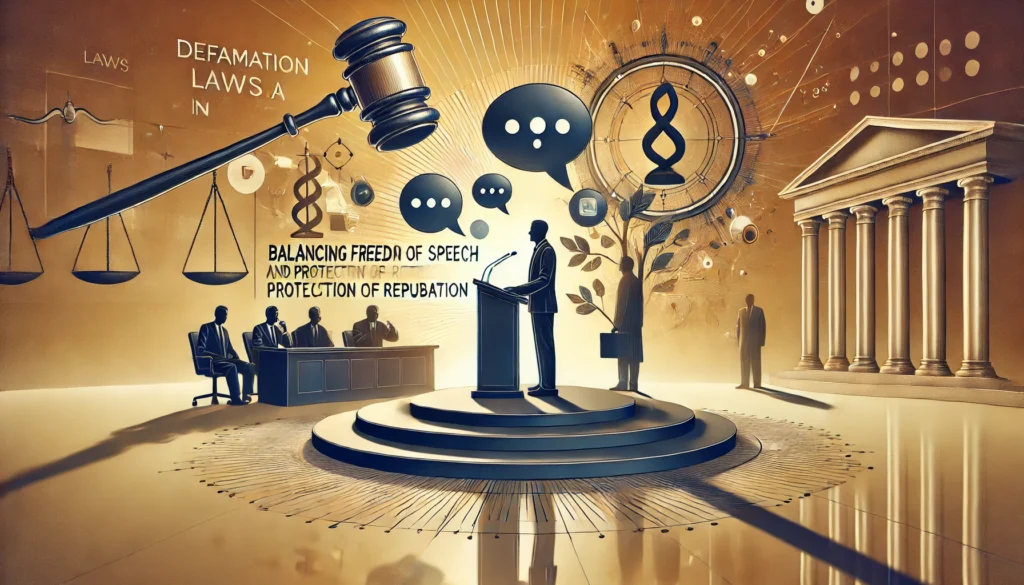Published on 11th June 2025
Authored By: K. Gayathri Devi
Amity University Rajasthan
Introduction
The dawn of the 21st century has ushered in an era of unprecedented connectivity, largely facilitated by the rise of social platforms. These digital spaces have become the modern-day agora, where ideas are exchanged, communities are formed, and political discourse unfolds. Yet, this transformative power comes with a complex set of challenges, particularly concerning the delicate balance between freedom of expression and the responsibility to mitigate the harms that can arise from unchecked online activity. We all know that social media is a wild ride, right? This article explores the legal and ethical considerations surrounding the regulation of social media, navigating the intricate terrain between safeguarding fundamental rights and protecting society from the potential pitfalls of the digital realm.
Before social media, if you had something to say, you needed a platform: a Newspaper, a T.V Station, or a Public Meeting. Now, anyone with a smartphone can broadcast their thoughts to the world. That’s incredible! It’s democratized information in a way we never thought possible. We see it in citizen journalism where everyday people document events and hold power accountable. We see it in movements that mobilize online, sparking real-world change.
This same power can be used to spread lies, incite violence, and ruin reputations. The line between expressing yourself and actively harming others gets blurry, especially when algorithms are designed to amplify whatever gets the most clicks, regardless of the truth.
Who gets to decide what’s harmful? That’s the million-dollar question. Should it be the platforms themselves? They’re private companies, after all, and they have their terms of service, but can we trust them? History shows us, powerful corporations don’t always act in the best interest of the public.
Then there’s the government. Can they step in and regulate? They can, but then we have to worry about censorship, about governments silencing dissenting voices. It’s a slippery slope. What one person considers “hate speech”, another might see as legitimate criticism.
We are also dealing with a cultural shift. People are used to instant gratification, to having their opinions validated immediately. Social media has created an environment where everyone expects to be heard, and sometimes, that leads to a real lack of nuance and empathy. People are quick to jump to conclusions, to demonize those who disagree with them.
The idea of “safe spaces” online is another interesting point. Some argue that people should be protected from offensive and triggering content, but where do you draw the line? Does protecting someone from discomfort mean silencing someone else’s voice?
The Dilemma of Freedom of Expression
Imagine a local community group using Facebook to organize a protest against a proposed development. That’s freedom of expression in action, and it can be incredibly powerful. What happens when the same platform is used to spread false rumors about the developer, inciting violence or harassment? Suddenly, the lines get blurry.
If we take the case of political speeches, in a democracy, we cherish our right to criticize our leaders, sometimes harshly but what about foreign actors using social media to spread disinformation and manipulate elections? How do we protect our democratic processes without stifling legitimate political debate?
Platforms themselves are in a tough spot. They’re caught between demands for censorship and accusations of bias. They try to walk a tightrope, but often end up pleasing no one. Their algorithms, meant to keep us engaged, often amplify the most extreme and divisive content, because that’s what gets clicks. They’re businesses, after all, and their bottom line is often tied to user engagement.
One potential solution is to focus on transparency. Make algorithms more transparent, so users understand how their content is being amplified or suppressed. Require platforms to disclose their content moderation policies and enforcement practices. This would allow for greater public scrutiny and accountability.
Another approach is to invest in media literacy education. Teach people how to spot misinformation, how to evaluate resources, and how to engage in respectful online discourse. This empowers users to make informed decisions and reduces their vulnerability to manipulation.
Our Voices, Our Responsibilities
This isn’t some abstract debate for the academics. It’s about our daily lives. It’s about how we talk to each other, how we learn, and how we form opinions. It’s about protecting our kids from online bullies and stopping lies from tearing communities apart. It’s easy to get caught up in the moment, to feel anonymous behind a keyboard, but we need to remember that every time we hit “share, we’re adding our voice to a massive, complicated conversation. It’s a conversation that we all have a stake in, and we all have a responsibility to keep it civil and honest because, at the end of the day, the internet is just a reflection of us.
The Promise and Peril of Unconstrained Expression
Article 19 of the Universal Declaration of Human Rights enshrines the right to freedom of opinion and expression, a principle that has traditionally been considered foundational to democratic societies. Social media platforms, in their ideal form, offer a space where this right can be exercised without geographical or temporal limitations. The ability to connect with like-minded individuals, share information, and participate in public discourse has empowered marginalized voices and fostered a sense of global citizenship.
However, the very features that make social media so powerful also contribute to its potential for abuse. The rapid dissemination of information, often without adequate verification, can lead to the spread of misinformation and disinformation, undermining public trust in institutions and fueling social unrest. The anonymity afforded by some platforms can embolden individuals to engage in online harassment, hate speech, and other forms of abusive behavior, causing significant emotional and psychological harm. Furthermore, the algorithmic amplification of certain content can create echo chambers, reinforcing existing biases and contributing to societal polarization.
The Legal Landscape
The legal response to the challenges posed by social media has been fragmented and often reactive, reflecting the rapid pace of technological development. Existing legal frameworks, designed for traditional media, struggle to adequately address the unique characteristics of online platforms.
In many jurisdictions, the principle of intermediary liability has been a central point of contention. Should social media companies be held responsible for the content posted by their users? The United States, through Section 230 of the Communications Decency Act, generally provides platforms with immunity from liability for user-generated content, a provision that has been both lauded for fostering innovation and criticized for shielding platforms from accountability. In contrast, the European Union, through the Digital Services Act (DSA), has adopted a more stringent approach, imposing obligations on platforms to moderate content, address illegal content, and ensure transparency in their algorithms.
The issue of hate speech has also been a focal point of legal debate. Many countries have laws prohibiting hate speech, but the application of these laws in the online context is complex. Defining hate speech, determining its legality, and enforcing prohibitions across borders pose significant challenges. Furthermore, the tension between combating hate speech and protecting freedom of expression requires careful consideration.
The problem of misinformation and disinformation has led to various legal and regulatory initiatives. Some jurisdictions have enacted laws criminalizing the spread of false information, while others have focused on promoting media literacy and empowering users to critically evaluate online content. The DSA also mandates that very large online platforms tackle systemic risks such as the dissemination of disinformation.
The Ethical Dimensions: Beyond Legal Obligations
While legal frameworks provide a foundation for regulating social media, ethical considerations are equally crucial. Social media companies have a responsibility to act as responsible stewards of their platforms, proactively addressing the potential harms that can arise from their use. This includes implementing robust content moderation policies, investing in fact-checking and verification mechanisms, and designing algorithms that promote transparency and fairness.
Beyond the obligations of platforms, individual users also have a responsibility to engage in ethical online behavior. This includes respecting the rights and dignity of others, avoiding the spread of misinformation, and being mindful of the potential impact of their online actions.
Finding the Balance: A Multi-Faceted Approach
Finding the perfect balance between freedom of expression and responsibility in the regulation of social media requires a multi-faceted approach. There is no single solution and different jurisdictions may adopt different strategies based on their specific legal and cultural contexts.
- Clear Legal Frameworks: Legal Frameworks must be updated to address the unique challenges posed by social media, balancing the protection of fundamental rights with the need to mitigate online harms. This includes clarifying the scope of intermediary liability, defining hate speech in the online context, and establishing mechanisms for addressing misinformation and disinformation.
- Robust Platform Governance: Social media companies must implement robust content moderation policies, invest in fact-checking and verification mechanisms, and design algorithms that promote transparency and fairness. Independent oversight mechanisms can enhance platform accountability.
- Promoting Media literacy: Empowering users to critically evaluate online content is essential. Media literacy education can help individuals identify misinformation, recognize manipulative tactics, and develop healthy online habits.
- International Cooperation: The transnational nature of social media requires international cooperation to address cross-border issues such as hate speech and disinformation. Harmonizing legal frameworks and fostering collaboration between platforms and governments can enhance the effectiveness of regulatory efforts.
- Ethical Guidelines: Industry-wide ethical guidelines can provide a framework for responsible platform governance, promoting transparency, accountability, and respect for user rights.
Conclusion
The regulation of social media is a complex and evolving challenge. Finding the appropriate balance between freedom of expression and responsibility requires a nuanced approach that considers both legal and ethical dimensions. While legal frameworks provide a foundation for regulating online activity, ethical considerations and a commitment to responsible platform governance are equally crucial. By fostering a culture of online responsibility and promoting media literacy, we can harness the transformative power of social media for the benefit of society while mitigating its potential harms.
The challenge of balancing freedom of expression and responsibility on social media is an ongoing one. There are no easy answers, and the landscape is constantly evolving. By engaging in open and honest dialogue, by embracing transparency and accountability, and by fostering a culture of digital citizenship, we can create a more just and equitable online world. It’s about recognizing that freedom of expression is a privilege, not a right to abuse, and that with great power comes great responsibility.
We also need to foster a culture of digital citizenship. Encourage responsible online behavior, promote empathy and understanding, and discourage the spread of hate speech and misinformation. This requires a collective effort, involving governments, platforms, educators, and individuals.
Ultimately, freedom of expression on social media isn’t just a legal issue. It’s a social and ethical one. It’s about how we, as a society, navigate this new reality where everyone has a voice, but not everyone uses it responsibly. It’s about teaching digital citizenship, about fostering critical thinking, and about creating a culture where we can disagree without resorting to personal attacks and misinformation. It’s about finding a way to balance the power of the digital megaphone with the responsibility that comes with using it.
References
- Universal Declaration of Human Rights, GA Res 217A (III), UN Doc A/810 (1948) art 19.
- Communications Decency Act of 1996, 47 USC § 230.
- European Union, Digital Services Act (Regulation (EU) 2022/2065).
- Helen Nissenbaum, Privacy in Context: Technology, Policy, and the Integrity of Social Life (Stanford University Press, 2009).
- Jack M. Balkin, Speech Rules: Democracy and Regulation of Online Speech (Yale University Press, 2016).
- Kate Klonick, ‘The New Governors: The People, Rules, and Processes Governing Online Speech’ (2017) 131 Harvard Law Review 1598.
- Tim Wu, The Attention Merchants: The Epic Scramble to Get Inside Our Heads (Alfred A. Knopf, 2016).
- Tarleton Gillespie, Custodians of the Internet: Platforms, Content Moderation, and the Hidden Decisions That Shape Social Media (Yale University Press, 2018).
- Julie E. Cohen, ‘Examining Equity in Algorithmic Governance’ (2020) 130 Yale Law Journal 1056.
- David Kaye, Speech Police: The Global Struggle to Govern the Internet (Columbia Global Reports 2019)




